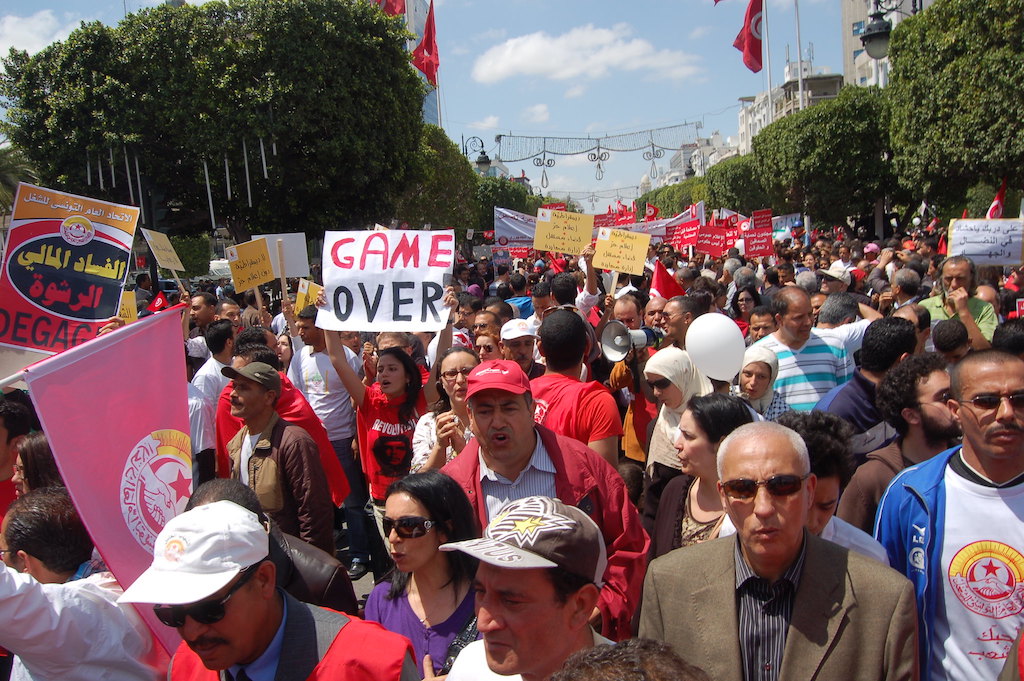When Tunisia initiated the democratic Arab Spring in late 2010, it was thrilling, even exotic to see it move through Libya and Egypt (Egypt!), overthrowing dictator Moammar Gadhafi and autocrat Hosni Mubarak — followed by genuine elections there. Or challenging Bashar Assad in Syria; or in Yemen and Bahrain. It was cyclonic.
Ten years later, only Tunisia remains democratic, and now it’s teetering. But, with forms of Trumpism menacing the survival of electoral democracy itself — the only functioning form we know — the Tunisian exception is no longer just exotic, it’s scarily pertinent.
I’d been holding out hope for Tunisia. I was there early on. But recently, journalist Patrick Cockburn, whom I regard highly, said this is no detour or blip — it’s a coup. He calls quirky president Kais Saied, who shut down parliament and dismissed the government, a version of Trump. I’ll sadly take Cockburn’s word, reserving slight hope for a reversal or that he’s wrong.
BTW, please don’t buy into western ideas that Arabs, or Muslims generally, are unsuited to democracy because — oh yuck, I won’t even get into the stupid theories. Mostly it’s been the oil. Western powers weren’t going to let elections of mild economic nationalists interfere with control of the resource, and even so, there’ve been electoral models in Jordan, Lebanon and Iraq. The larger Muslim world is replete with cases: Turkey, Indonesia, Bangladesh, Pakistan, Nigeria — it’s a bit embarrassing to start listing, since they’re all simply human societies.
So when Tunisia kicked it all off, it was moving, reassuring and full of powerful images. In December 2010 a street vendor, Mohamed Bouazizi, having been humiliated by local officials, doused himself with gas and burned to death. It wasn’t unique, but it resonated uniquely. The country exploded in protest, including rappers and bloggers. They called it the Dignity Revolution, resisting western attempts to label it the Jasmine Revolution. A month later a woman went into Tunis’s streets one early morn, and breathed “he’s gone” — meaning Zine El Abidine Ben Ali, “the dictator.” He was! People streamed out, and the process spread.
A year later, as I was leaving Tunis after a visit, a crowd roared by with banners reading “Occupy Tunis,” based on the Occupy Wall Street movement. A local muttered, “We already occupied Tunis. That’s where Americans got the idea.” Ennahda, the main Muslim party, which had been part of the opposition, didn’t try to take over, as in Iran 30 years before. They worked democratically. On the street you’d see women arm in arm, one dressed traditionally, the other in beachwear.
Now it’s over, if Cockburn’s right. What’s to be learned? The leader of one of the main secular parties told me in 2011, “If we don’t solve the jobs problem, nothing we say about democracy will matter, even though it’s all true.” I never left the hotel without being besieged by young men wanting money or work. Bernie Sanders based everything on this. Unless a reform movement addresses the concrete needs of people, nothing it’s devoted to will endure.
What else? Brace yourself. This one will sound weird but comes from an informed source: Maybe it doesn’t matter that you succeed.
I base this on a February interview by CBC’s Carol Off with Maryam al-Khawaja, a Bahraini human rights advocate now in Denmark. Her dad, Abdulhadi al-Khawaja, is a longtime rights fighter jailed during Bahrain’s “spring.” (Canada played a foul role, supplying military vehicles used to suppress protesters.) He was tortured to the point that banging his head on the cell floor till unconscious was his only form of relief. He’s still imprisoned.
Off asked if things were better and al-Khawaja said No, worse. Asked how her father would feel now, she said his attitude had always been that what happened in 2011 “is something to be celebrated every day because that in and of itself was an achievement. What comes beyond that is secondary.” So, she continued, “I don’t regret that we had an opportunity to breathe freedom, even if it was a short period of breathing freedom.” Damn.
I once wrote a play on a failed Canadian revolution for freedom that ended with the exchange, “We lost … No, we just haven’t won yet.” It was my best shot, but this is better. Success is always reversible. Yet that doesn’t cancel the duty to try. It’s in our nature. We can fail in it, but we cannot abandon it.
Rick Salutin writes about current affairs and politics. This column was first published in the Toronto Star.
Image credit: scossargilbert/Flickr




